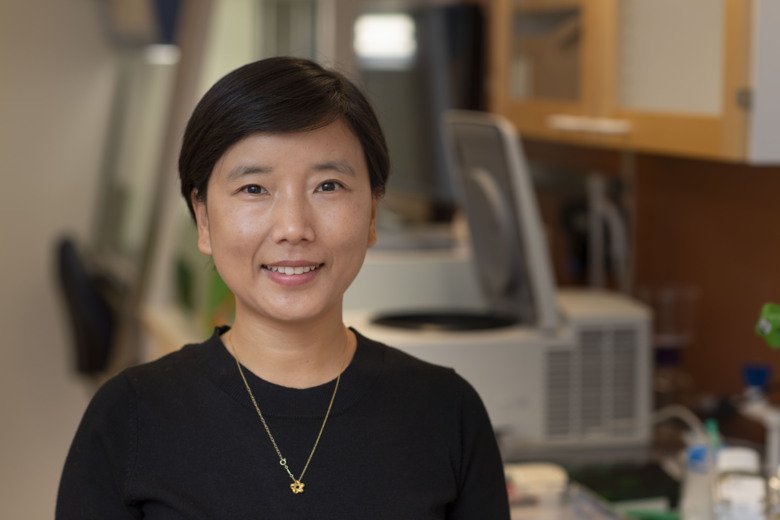Changing the image of ALS
Much of Fang Fang’s research concerns ALS. Although her background is in epidemiology, she likes to integrate other types of research. In her view, multidisciplinary collaboration is key to understand and, in the long run, to cure the disease.

What are you researching?
“My research concerns mainly neuro-degenerative diseases, with a particular focus on the devastating disease amyotrophic lateral sclerosis, ALS. We try to understand why some people suffer from ALS, whereas most of us do not, and why the prognosis looks so different for different patients with ALS. In my research, we have demonstrated increased risk of ALS among blood relatives of ALS patients and shown that the disease likely affects the whole-body physiology including the energy metabolism. Previously, ALS was seen as a disease limited to the central nervous system, but we are beginning to understand that it involves much more of the body.”
How do you go about researching this?
“The starting point for me as an epidemiologist is registers, cohorts, case-control studies, and biobanks – partly those that are already established, and partly those that we establish ourselves. With these resources, I have the possibility to combine my epidemiological tools with other types of research, with the aim to obtain a more comprehensive image of the disease. For example, I collaborate with researchers within different disciplines and specialities to understand more about disease mechanisms.
In recent years, we have initiated a new population-based case-control study for ALS, where we collect information about the study participants’ immune responses, metabolism and bacterial flora of the gastrointestinal system. We are starting to understand that ALS may be developing through an interplay between these and other systems.”
What do you hope to achieve in the long run?
“My goal is to build a strong integrative collaboration within ALS research and care at KI that should range from etiological studies to clinical trials. When different disciplines and competences are combined into a rich collaborative environment, the quest for answers to a complex research question can be pursued more efficiently. There has been considerable progress in ALS research over the past decades and I believe that our research will assist in the future development of both effective treatment for patients with ALS and preventive measures for those at high risk of developing the disease.”
Text: Anders Nilsson, first published in the booklet From Cell to Society 2020.
About Fang Fang
Professor of Epidemiology at the Institute of Environmental Medicine
Fang Fang was born in 1980 in the archipelago outside Shanghai, China, and graduated from her medical studies in 2004 from Capital Medical University, Beijing, China. In 2010, she received her PhD degree in Medical Sciences at KI, after a PhD study period that also included a year at the National Institute of Environmental Health Sciences in North Carolina, USA.
Fang was a postdoc at Harvard Medical School, USA, 2009–2010, and at the Department of Medical Epidemiology and Biostatistics (MEB), KI, 2011–2012. Fang became an associate professor in 2013 and has continued research at MEB until her professorship appointment. Among other recognitions achieved, she has been awarded the Dimitris N Chorafas Prize 2010 and the ERC Starting Grant 2018.
Fang Fang was appointed Professor of Epidemiology at Karolinska Institutet on October 1, 2019.
